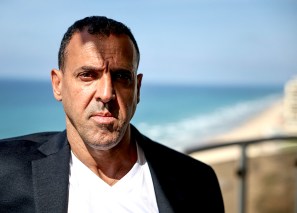There is much to enjoy in Dominic Cummings’ glorious attack on the ghastliness of Britain’s political system. It is a cri-de-coeur from a man who, whatever else may be said of him (and his enemies have plenty to say), has given the matter some thought.
Westminster will swoon at the criticisms of Cameron (‘a sphinx without a riddle’), Ed Llewellyn (‘a classic third-rate suck-up-kick-down sycophant presiding over a shambolic court’) and Craig Oliver (‘just clueless’) but that’s just the gags, really. The substance is elsewhere. As in:
“MPs have no real knowledge of how to function other than via gimmick and briefings. That’s also how No 10 works. It’s how all of them are incentivised to operate. You get ahead by avoiding cock-ups and coming up with tactical wins, you don’t get ahead by solving very hard problems.”
As for civil servants:
“The poor buggers are caught between structural dysfunction and politicians running around who don’t really know what they’re doing all day or what the purpose of their being in power is. Everyone thinks there’s some moment, like in a James Bond movie, where you open the door and that’s where the really good people are, but there is no door.”
Well, quite. Politics is difficult and change is even harder. It is much easier just to muddle on through. The state is a Heath Robinson contraption and every year brings fresh bodging that helps get everyone through the day but covers-up the fact no-one really knows how anything works. Sometimes even finding the problem is harder than you might imagine.
Cummings observes that Cameron had a picture of Macmillan on his wall “and that’s all you need to know”. Indeed. Then again, Cameron is a Tory and Cummings is a radical. It is not so surprising that they see things differently. Nor is it surprising that Cummings thinks Cameron could have been bolder and given greater priority to education reform. It’s a view with which I have no small sympathy.
But if it is difficult to make progress in a single department it is obviously vastly – hideously – more difficult to make progress across the entire range of government activity. Cummings is right that focus and grip are as necessary as they are easily lost but if it requires a constant effort to maintain those things in a single department, imagine how much more difficult it is to do so across the whole of government.
You might say that is part of the problem. Government is too large, too complex, too sclerotic and too intrusive. Again, I would instinctively agree. Blowing the whole thing up and starting again has a certain appeal. But politicians have to answer to an easily-frightened electorate in ways special advisors – even brilliant ones – do not. Winning elections is a non-trivial part of the process, not least since doing so at least prevents the opposition from making things even worse.
The game is a problem made worse by the things you have to do to win the game. Which is depressing and the kind of thing clear-eyed SpAds find especially vexing. But you don’t get to say ‘We’re not playing the game’. Not unless everyone else decides not to as well. And they won’t.
So we are where we are and must make the best of it. Moreover, eventually you reach a point at which you need allies and this too rather requires you to take care of people. You need to bring them with you, otherwise your victories risk proving ephemeral.
Again, that’s less of a problem for the stormtroopers but not everyone can be a stormtrooper and, in any case, stormtroopers alone are not enough.
So, sure, scrapping GCSEs and introducing vouchers (though what are you going to do for rural schools?) are not bad ideas at all. I like them! But if Gove & Co had done all that – and if they had reduced the DoE employment roll by 75% – all hell would have broken out. People would too easily have been persuaded that these folk are crazy zealots running amok.
Advance too far, too quickly and you risk running out of fuel. Moreover you become isolated and vulnerable to counter-attack. You risk seeing your gains wiped-out. I worry that this could happen to Gove’s reforms. Government policy might not move at the pace of its slowest component but it can’t afford to leave too many soldiers behind either.
It may be true that you don’t get ahead in this game by solving really hard problems. But that may be – as in the case of housing policy – because if they could be solved by quick, simple and easy solutions they might have been solved already.
‘What do we want? Incremental progress. When do we want it? In the fullness of time.’ This is not the sort of thing to make a radical heart soar. But it might be the best we can realistically hope for. Not enough but better than the alternatives. That’s one definition of Toryism, anyway.
And if, as Cummings so eloquently demonstrates, it can be tough being a reforming SpAd, it seems reasonable to think it must be even tougher working in the Prime Minister’s team when, by necessity, almost everything requires some kind of trade-off.
Another way of looking at it is this: Cummings (like Gove) is a specialist but Cameron (and his advisors) are generalists. It’s not a surprise that the former sometimes view the latter with something approaching exasperation. Bloody amateurs!
And bloody government is bloody difficult. It would be lovely if it were easier or simpler. It might be better then, too. But I’m not sure every problem is a Gordian Knot that can be solved by a single stroke of a sword.
UPDATE: Dominic Cummings offers more thoughts here. As always, they are worth your time.








Comments